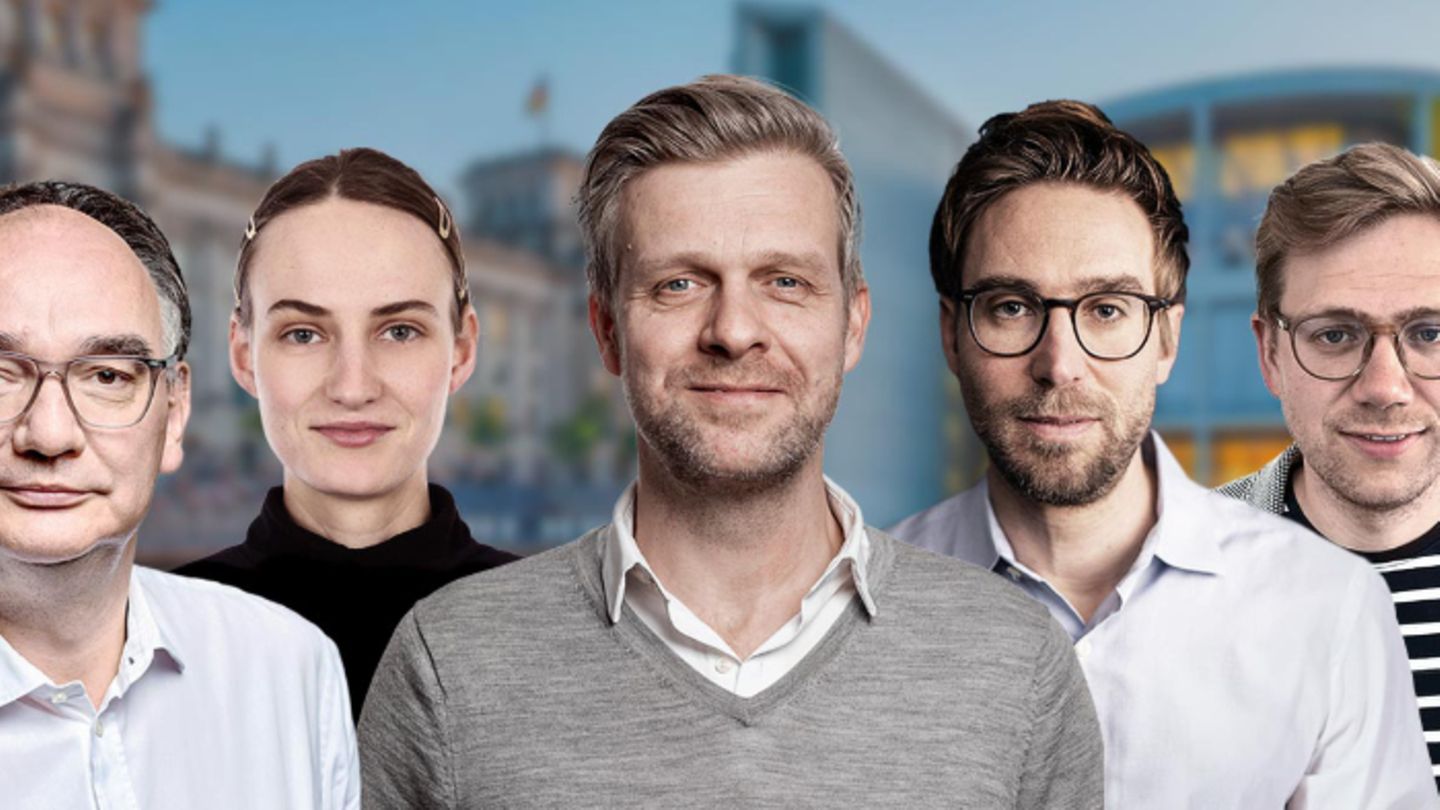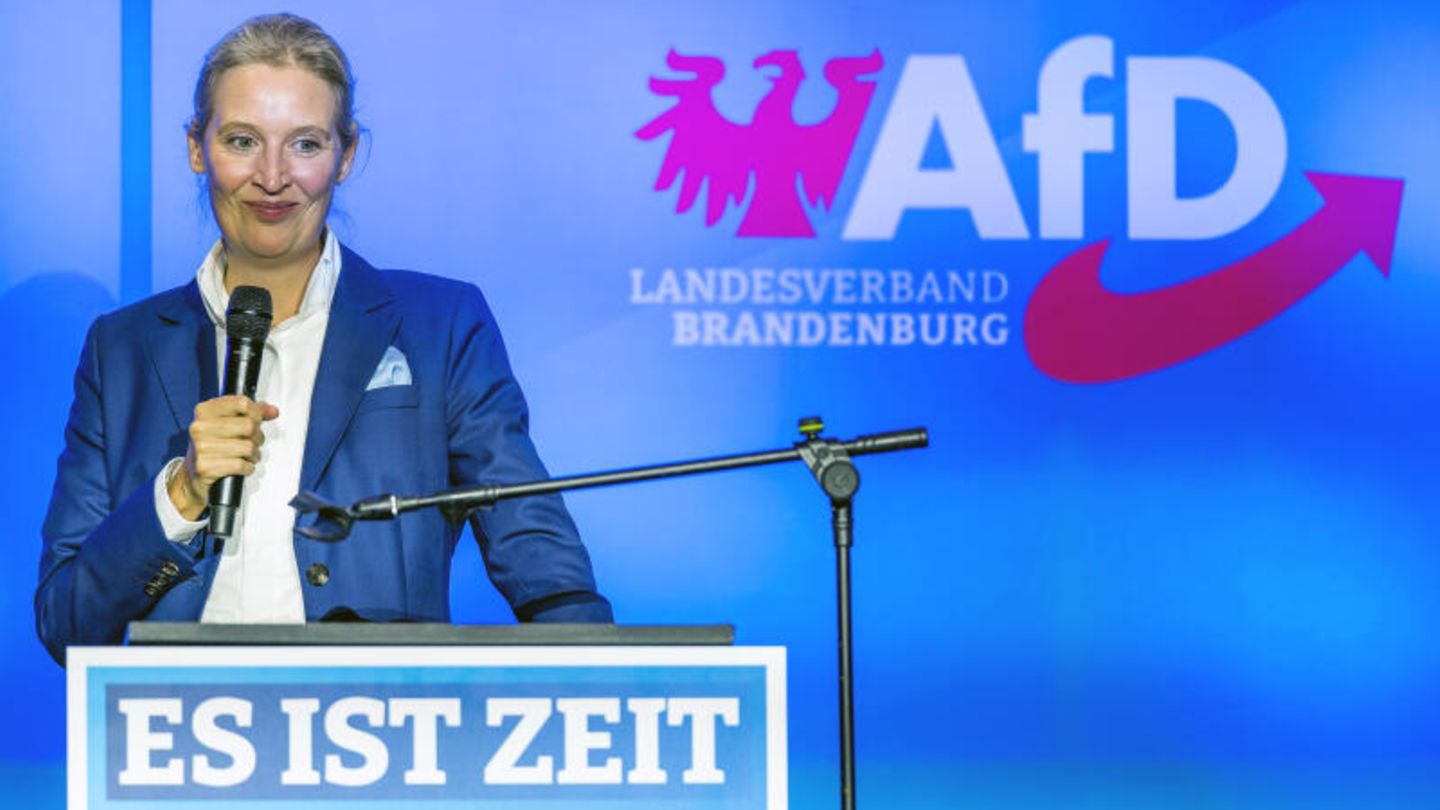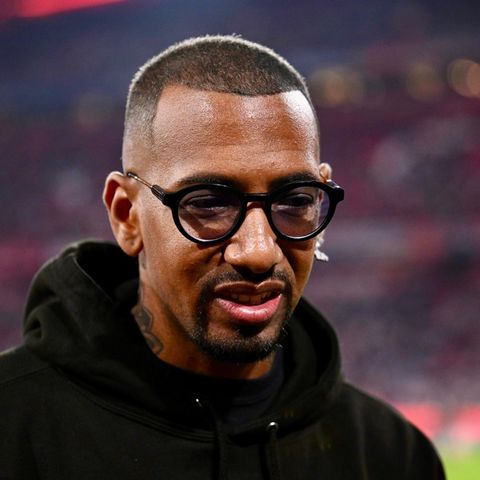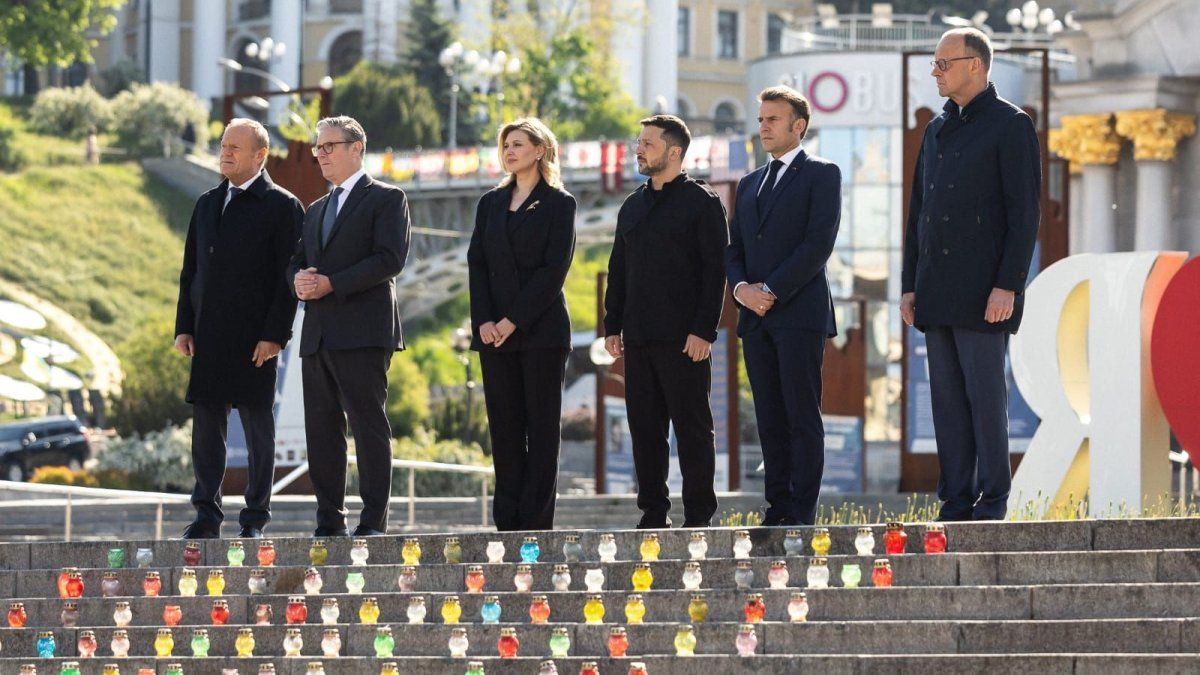In Brandenburg, a new poll promises excitement ahead of the state election on Sunday. The parties are drumming up support in the final stages.
Shortly before the state elections in Brandenburg, the battle for first place is coming to a head, according to a survey. The AfD, with 28 percent, is only just ahead of the SPD with 27 percent, according to the ZDF Politbarometer Extra. This means that the gap has narrowed compared to the survey conducted by the research group Wahlen on September 13th – at that time the difference between the two parties was still three percentage points. Two days before the vote this Sunday, the election campaigns of most parties are coming to an end. The Brandenburg Office for the Protection of the Constitution classifies the AfD state association as a suspected right-wing extremist case.
The CDU is at 14 percent in the new survey. The Greens are at 4.5 percent, the Left is at four percent, and BVB/Free Voters are at 3.5 percent. This puts them below the five percent hurdle. However, due to a clause, it is possible to enter parliament with at least one direct mandate, even if the five percent threshold is not reached.
The Sahra Wagenknecht (BSW) alliance is currently at 13 percent. However, 27 percent of those surveyed are not yet sure who they want to vote for or whether they want to vote for. For the representative ZDF survey, the research group Wahlen surveyed 1,118 eligible voters in Brandenburg on Wednesday and Thursday of this week.

The stern capital team
Are you interested in politics? – and read the most important information of the week, selected for you by our Berlin political experts!
State elections in Brandenburg: What will become of SPD Prime Minister Woidke?
The SPD hopes that it can score points in the final phase of the election campaign with the popularity of Prime Minister Dietmar Woidke (SPD). When asked who people would prefer as Prime Minister, Woidke is at 59 percent in the new ZDF survey, far ahead of the AfD’s top candidate Hans-Christoph Berndt with 16 percent. Woidke is currently governing with a coalition of the SPD, CDU and Greens. If the AfD comes in first place, Woidke will give up his office.
According to the figures from the new survey, it would not be enough for a government made up of the SPD and CDU – in which case the BSW could come into play as a coalition partner. According to the information, it would be enough for a coalition made up of the AfD and SPD or just enough for a government made up of the AfD and CDU. However, both are considered out of the question, as the SPD and CDU do not want to work with the AfD. If one of the smaller parties enters the state parliament after the election, other coalition possibilities would arise.
On Friday, the SPD is hosting a final campaign event with Woidke in Oranienburg (3 p.m.). The Left Party is fighting for re-entry into parliament with former parliamentary group leader Gregor Gysi and top candidate Sebastian Walter in Eberswalde (5 p.m.). The Green Party’s top candidates Antje Töpfer and Benjamin Raschke are campaigning with Foreign Minister Annalena Baerbock in Potsdam (6.30 p.m.) to have their seats in the state parliament again.
The CDU will conclude its election campaign on Saturday with federal party leader Friedrich Merz in Potsdam. The AfD officially ended its election campaign on Thursday in Cottbus with Thuringian state chairman Björn Höcke as a guest, the FDP in Potsdam with party leader Christian Lindner. The Sahra Wagenknecht (BSW) alliance had already concluded its campaign on Wednesday in Potsdam in the presence of the party’s founder and namesake.
Banger view from Berlin
The outcome of the election in Brandenburg is also exciting from a national political perspective. The centrifugal forces in the traffic light coalition could become even greater if the partners want to sharpen their own profiles a year before the federal election. A debate about whether Chancellor Scholz should lead the SPD into the federal election could also gain momentum. The Union, on the other hand, has already resolved its K question in favor of CDU leader Friedrich Merz. The separate approval of the Union bodies on the day after the Brandenburg election is considered a formality.
The election year in Germany also ends with the Brandenburg election. After the partial repeat of the federal election in Berlin in February and the European election on June 9, the state elections in Saxony and Thuringia followed on September 1. Next year there will only be one state election, in Hamburg on March 2. After that, all eyes will be on the federal election on September 28.
Source: Stern
I have been working in the news industry for over 6 years, first as a reporter and now as an editor. I have covered politics extensively, and my work has appeared in major newspapers and online news outlets around the world. In addition to my writing, I also contribute regularly to 24 Hours World.




